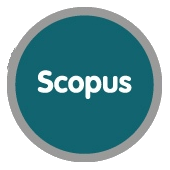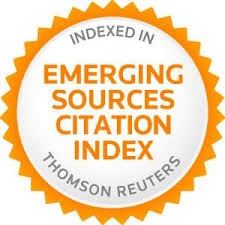La transformación del currículo en una sociedad diversa: ¿quién y cómo se decide el currículum?
Resumen
El artículo presenta la investigación de tesis doctoral que se ha desarrollado en cuatro espacios de participación ciudadana de la ciudad de Madrid durante tres años (2015/2017). Consideramos que la ciudadanía se aprende ejerciéndola y que los espacios de participación son escuelas de ciudadanía. La finalidad del estudio es formular propuestas educativas para el aprendizaje de la ciudadanía activa a partir del análisis de lo que sucede en dichos espacios. El texto se estructura en torno a estos apartados: 1) reflexiones y premisas en relación a la participación y la educación para la ciudadanía; 2) antecedentes directos de la investigación y las continuidades que se dan en este trabajo; 3) enfoque intercultural desde el que comprendemos la participación ciudadana; 4) estudio etnográfico realizado mediante observación participante y entrevistas dirigidas a 30 informantes clave. Se describen los cuatro casos de estudio y el proceso de análisis a través de la definición categorial; 5) resultados organizados en tres grandes bloques temáticos: diversidad y complejidad, visión relacional y prácticas educativas; 6) propuestas educativas derivadas de los resultados y dirigidas tanto a profesionales de la educación como a personas implicadas en los espacios de participación ciudadana.
Palabras clave
Referencias
Aguado, T., Ballestreros, B., & Malik, B. (2003). Cultural diversity and school equity. A model to evaluate and develop educational practices in multicultural education contexts. Excellence & Equity in Education 36(1), 50-63. doi: https://doi.org/10.1080/10665680303500
Apple, M. W. (2004). Ideology and curriculum, 3rd ed. New York: Routledge Falmer. doi: https://doi.org/10.4324/9780203487563
Banks, J. A. (1993). The canon debate, knowledge construction, and multicultural education. Educational Researcher 22 (5), 4–14. doi: https://doi.org/10.3102/0013189X022005004
Banks, J. A. (2004). Race, knowledge construction, and education in the United States. In J. A. Banks & C. A. M. Banks (Eds.), Handbook of research on multicultural education (2nd ed., pp. 228–239). San Francisco, CA: Jossey Bass.
Besalú Costa, X. (2016). Interculturalidad y convivencia: discursos que anticipan y legitiman prácticas. Una Mirada Intercultural y Para la Equidad y la Justicia Social 14, 27-33.
Brown, A. L. & Brown, K. D. (2010). Silenced memories: An examination of the sociocultural knowledge on race and racial violence in official school curriculum. Equity & Excellence in Education 43(2), 139-154. doi: https://doi.org/10.1080/10665681003719590
Brown, A. L. & Brown, K. D. (2015). The more things change, the more they stay the same: Excavating race and the enduring racisms in U.S. curriculum. Teachers College Record 17(14), 103-130.
Cabrera, N. L., Milam, J. F., Jaquette, O., & Marx, R. W. (2014). Missing the (student achievement) forest for all the (political) trees. American Educational Research Journal 51(6): 1084-1118. doi: https://doi.org/10.3102/0002831214553705
Cammarota, J., & Romero, A. (2009). The Social Justice Education Project: A critically compassionate intellectualism for Chicana/o students. In W. Ayers, T. Quinn & D. Stovall (Eds.), Handbook for social justice education (p. 465-476). New York: Routledge.
Carretero, M. (2011). Constructing patriotism. Charlotte, North Carolina: Information Age Publishing.
Dee, T., & Penner, E. (2017). The causal effects of cultural relevance: Evidence from an ethnic studies curriculum. American Educational Research Journal 54 (1): 127-166. doi: https://doi.org/10.3102/0002831216677002
Epstein, T. (2009). Interpreting national history. New York: Routledge.
Gallegos, B. P. (1998). Remembering the Alamo: Imperialism, memory, and postcolonial educational studies. Educational Studies, 29(3), 232–247. doi: https://doi.org/10.1207/s15326993es2903_1
Grant, C. A. & Sleeter, C. E. (2009). Turning on learning, 5th ed. New York: Wiley.
Martinez, G. (2010). Native pride. Cresskill, NJ: Hampton Press, Inc.
Noboa, J. (2005). Leaving Latinos out of history: Teaching US history in Texas. New York: Routledge.
Ochoa, G. L. (2007). Learning from Latino teachers. San Francisco: Jossey Bass.
Pelligrino, A., Mann, L. & Russell, W. B., III. (2013). Lift as we climb: A textbook analysis of the segregated school experience. The High School Journal 96: 209-231. doi: https://doi.org/10.1353/hsj.2013.0009
Rojas, M. A. (2010). (Re)visioning U.S. Latino literatures in high school English classrooms. English Education 42(3): 263-277.
Romanowski, M. H. (2009). Excluding ethical issues from U.S. history textbooks. American Secondary Education 37 (2), 26-48.
Samper Rosero L. & Garreta Bochaca, J. (2011). Muslims in Catalonian textbooks. Journal of Educational Media, Memory, and Society 3(1), 81-96.
Sleeter, C. E. (2011). The academic and social value of ethnic studies. Washington, DC: National Education Association.
Sleeter, C. E. & Flores Camona, J. (2016). Un-standardizing curriculum: Multicultural teaching in the standards-based classroom, 2nd ed. New York: Teachers College Press.
Stanton, C. R. (2014). The curricular Indian agent: Discursive colonization and Indigenous (dys)angency in U. S. history textbooks. Curriculum Inquiry 44(5): 649-676. doi: https://doi.org/10.1111/curi.12064
Van Alphen, F. & Carretero, M. (2015). The construction of the relation between national past and present in the appropriation of historical master narratives. Integrative Psychology and Behavioral Sciences 49, 512-530. doi: https://doi.org/10.1007/s12124-015-9302-x
Wiggins, G., & McTighe, J. (2005). Understanding by design, 2nd ed. New York: Pearson.
Zavala, M., Cuauhtin, T., Sleeter C., & Au, W. (Coord.) (In press). Rethinking ethnic studies. Milwaukee, WI: Rethinking Schools Ltd.
Enlaces refback
- No hay ningún enlace refback.

Este obra está bajo una licencia de Creative Commons Reconocimiento-NoComercial 4.0 Internacional.


